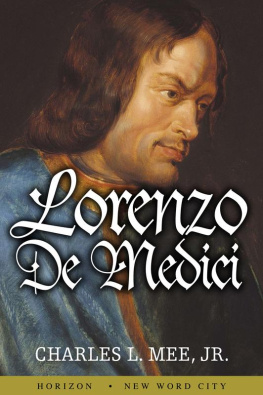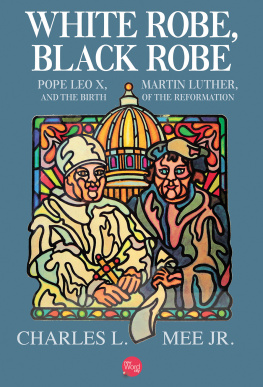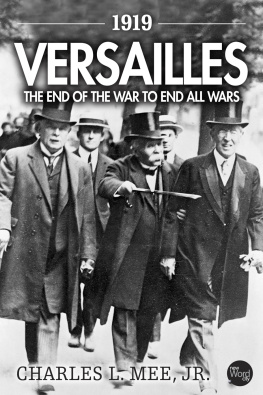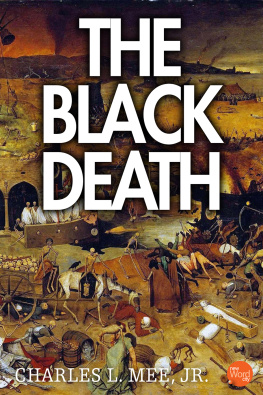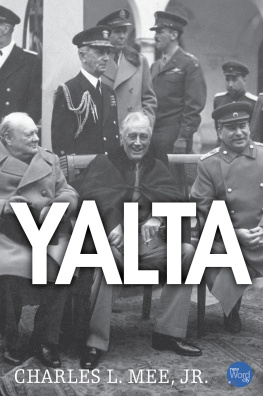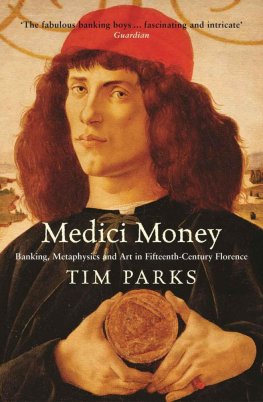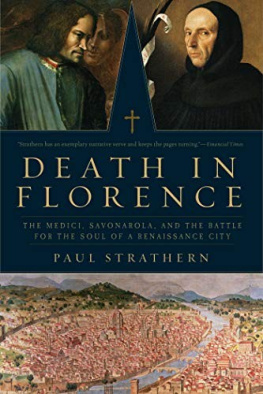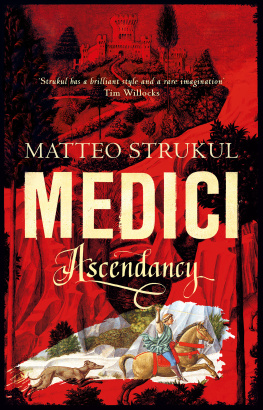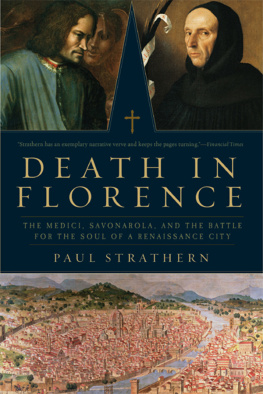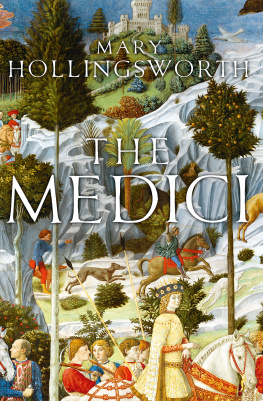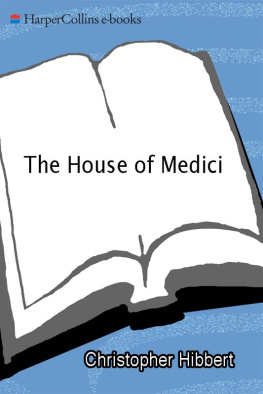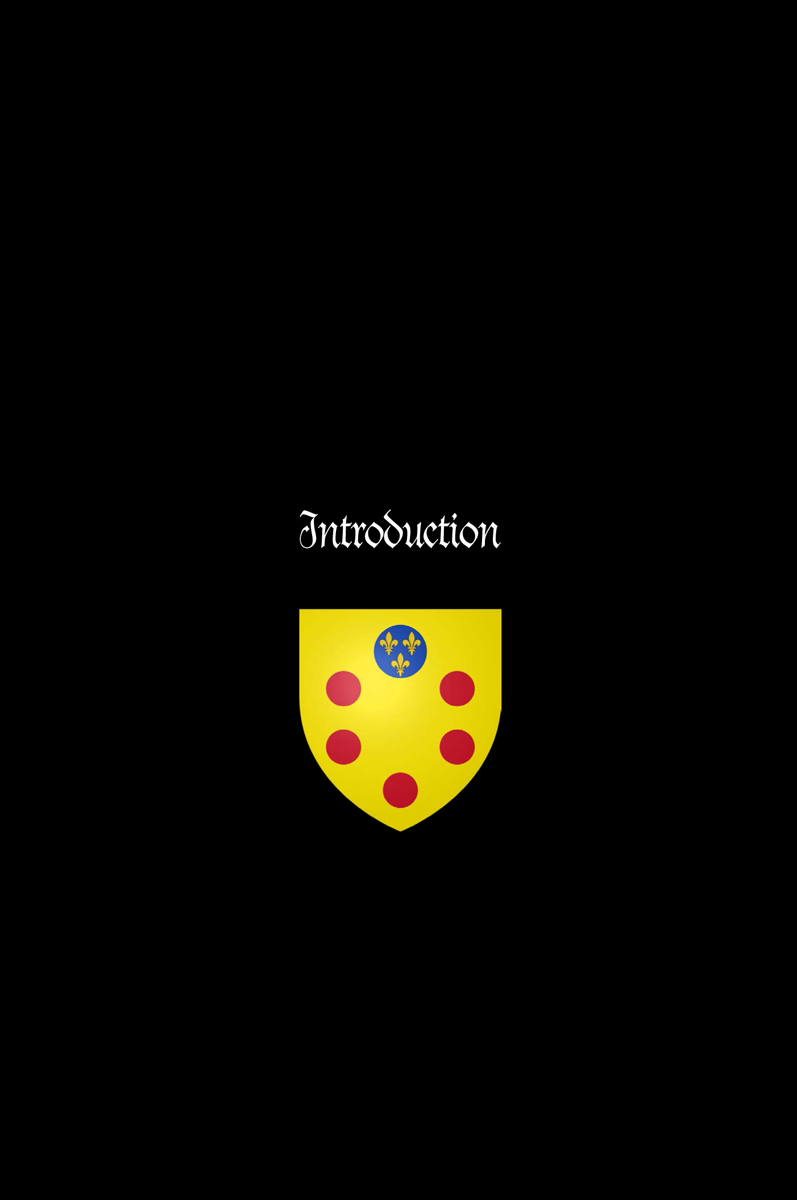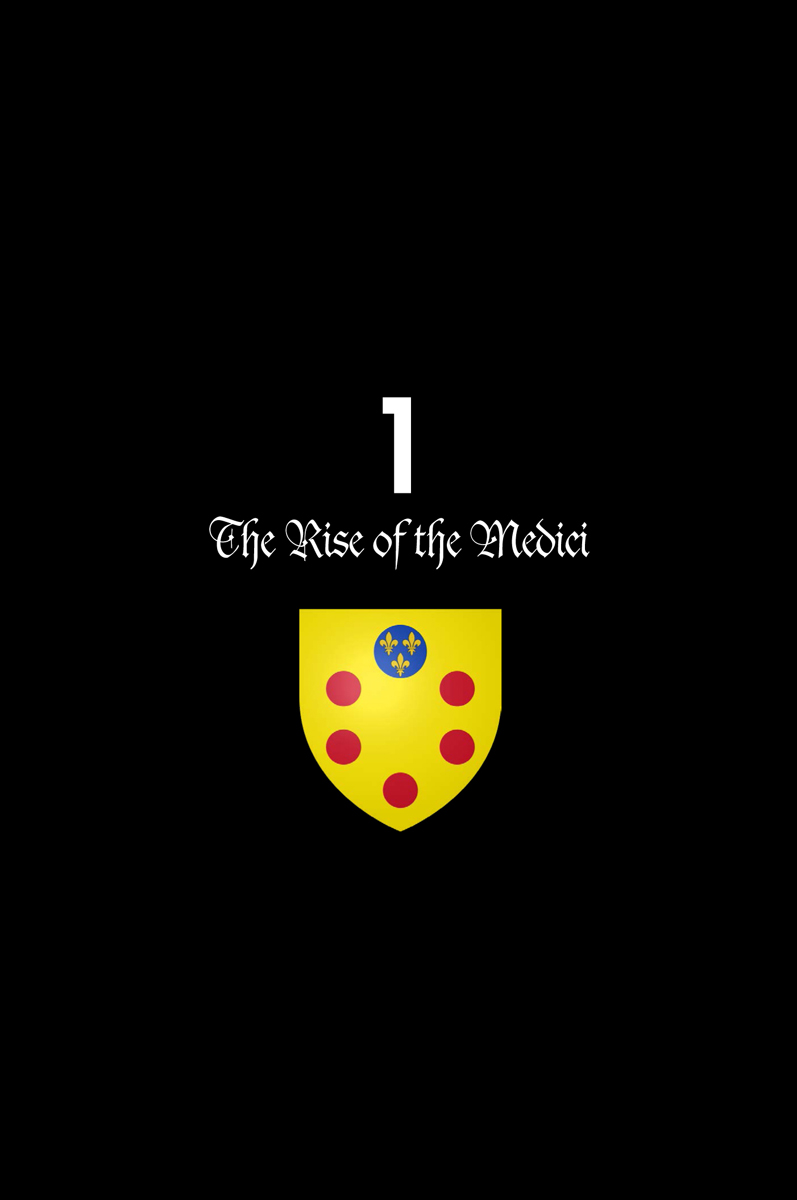Lorenzo de Medici was never an old man. He died in 1492, the year Christopher Columbus first set foot on American soil, at the age of forty-three. He came to power in fifteenth-century Florence as a very young man of twenty. In the twenty-odd years of his rule, this banker, this politician, this international diplomat, this free-wheeling poet and writer of songs, this establishment member and energetic revolutionary helped to give shape and tone and tempo to that truly dazzling time of Western history, the Renaissance .
This book is about the whirlwind life of Lorenzo de Medici and of the times in which he lived.
What has his life and times to do with us? Just this: The Renaissance was a time in which old values and traditions were under attack. It was a time of dismay and anxiety, of restlessness, riot, and despair. That such a time can turn out so well may reassure us - especially if we learn from the people who helped to make the Renaissance an age not only of endings but also of hope and great achievement.
The murderers being ready, each in his appointed station, which they could retain without any suspicion, on account of the vast numbers assembled in the church, the preconcerted moment arrived, and Bernardo Bandini, with a short dagger... struck Giuliano in the breast, who, after a few steps, fell to the earth. Francesco de Pazzi threw himself upon the body and covered him with wounds; whilst, as if blinded by rage, he inflicted a deep incision upon his own leg. Antonio and Stefano the priest attacked Lorenzo, and after dealing many blows, effected only a slight incision in the throat; for either their want of resolution, the activity of Lorenzo, who, finding himself attacked, used his arms in his own defense, or the assistance of those by whom he was surrounded, rendered all attempts futile. They fled...
Thus, the wily Italian diplomat and historian Niccolo Machiavelli described the fateful day of the Pazzi conspiracy - Sunday morning, April 26, 1478. A typical little tale of the Renaissance? Well, not quite. It was, to be sure, a time of violence and bloodshed, a time for soaring ambition and bitter rivalry, for intense hatreds and transcendent loves. It was, in short, a time for great passions. And murder, even murder in a cathedral, even a murder for which the cue was the ringing of the bells at the most sacred moment of the Mass, must not seem too exceptional.
What was exceptional, however, was the intended victim of the conspiracy. One need only identify the Lorenzo spoken of in order to lend historic importance to the event. He was Lorenzo de Medici, the most remarkable of all the remarkable Medici family. To so distinguish him is no faint praise, for the Medici were the leading family in Florence, and Florence was the leading city in Italy during the Renaissance. In that brilliant family, in that astonishing town, in that age of surpassing magnificence, Lorenzo was called The Magnificent.
He was a robust man, with a strong athletic body, and a zest for all of life so vigorous and infectious that he drew his age about him and dominated it by the sheer force of his character. Indeed, his talents and enthusiasms were so all-encompassing that he stands as an archetype of the Renaissance Man.
Lorenzo escaped the assassins - with only a minor gash in his neck - by wrapping his cloak around his forearm, drawing his sword, and fighting his way to the sacristy, where the massive bronze doors closed behind him with an echoing clang. Fearing that the assassins dagger might have been poisoned, a friend sucked the wound, and Lorenzo managed to get back to his palace with no further threats.
His brother, Giuliano , however, was dead. He had been attacked with a fury, his body ripped by twenty-nine dagger blows.
The assassins had expected the citizens of Florence to rise up and join them. They were fatally wrong, as this excerpt from the diary of shopkeeper Luca Landucci indicates: Meantime all the city was up in arms, in the piazza and at Lorenzo de Medicis house. And numbers of men on the side of the conspirators were killed in the piazza, amongst others a priest of the bishops was killed there, his body being quartered and the head cut off, and then the head was stuck on the top of a lance, and carried about Florence the whole day, and one quarter of his body was carried on a spit all through the city, with the cry of: Death to the traitors!
Landucci continued: The next day they hung Jacopo Salviati... and the other Jacopo, also at the windows, and many others of the households of the cardinal and of the bishop. And the day after that... Messrs. Jacopo de Pazzi and Renato de Pazzi were hung at the windows of the Palazzo Signoria... and so many of their men with them, that during these three days the number of those killed amounted to more than seventy.
Revenge for the death of Giuliano - and for the attempt on Lorenzos life - did not cease until 270 conspirators were killed, exiled, or ruined. After the body of Jacopo de Pazzi had been buried, our shopkeeper reports:... some boys disinterred it... and dragged it through Florence by the piece of rope that was still round its neck... And when they grew tired and did not know what more to do with it, they... threw it into the river... And it was considered an extraordinary thing, first because children are usually afraid of dead bodies, and secondly because the stench was so bad that it was impossible to go near it; one may imagine what it was like [after twenty days]. And they must have had to touch it with their hands to throw it into the Arno. And as it floated down the river, always keeping above the surface, the bridges were crowded with people to watch it pass...
Thus, the old man Jacopo de Pazzi, whose family had tried to kill Lorenzo, was sent to sea.
The Pazzi name was stricken from the public records, the familys coat of arms was torn from buildings, and the intersection Canto de Pazzi was given a new name - for the death of one Medici, the extinction of the very name of Pazzi.
The Florentines surpassed most, surely, in their appetite for violence. Yet, they surpassed most as well in their hunger for great achievements. Across the street from the duomo or cathedral, where the assassination took place, was the Baptistery , its doors adorned with bronze reliefs sculpted by Lorenzo Ghiberti . Ghiberti took twenty-seven years to complete the doors. A younger artist, Michelangelo , later called them fit to be the Gates of Paradise.
Florence, then, was a city where men could make the Gates of Paradise or behave like the very denizens of hell. The Florentines knew the full range of human experience, and they delighted in expressing all of it - in poetry, in painting, in sculpture and architecture, in politics and business, and even in murder. How it came to be a city stuffed with the greatest and lowest of human passions, and how the Medici came to dominate it, requires some brief rehearsal of history.
In the Middle Ages , the landscape of Italy was one in which great fortified castles perched atop the countrys thousands of mountain peaks. The land around was devoted almost exclusively to agriculture, farmed by serfs who virtually were owned, body and soul, by the feudal lords who ruled their miniature kingdoms from their castles.
In about 1000 A.D., everything began to change. Commerce revived - first in trade with the East and then throughout Europe. With commerce, towns came to be filled with traders and merchants, cloth makers and bankers, and craftsmen of all descriptions.

